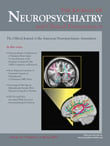Stimulating Research: A Prospective, Randomized, Double-Blind, Sham-Controlled Study of Slow Transcranial Magnetic Stimulation in Depressed Bipolar Patients
SIR: Patients with bipolar disorder may spend more than half of their lives experiencing depression. 1 Unfortunately, antidepressant treatment may adversely affect the overall course of bipolar illness, increasing the rates of rapid cycling and inducing chronic depressive states. 2 Menkes et al. 3 showed that slow (F≤1 Hz) repetitive transcranial magnetic stimulation (rTMS) applied to the right dorsolateral prefrontal cortex (DLPFC) proved to be safe and effective in the treatment of unipolar depression. This exploratory study explores safety and efficacy, in bipolar depression.
Case Report
We studied five type I bipolar disorder depressed patients on a stable mood stabilizer regimen without antidepressant treatment. Four subjects were randomly assigned to receive active rTMS, and one was assigned to sham rTMS. Patients were maintained on their medications: lithium (N=2), risperidone (N=1), quetiapine (N=1), divalproex (N=1), and lamotrigine (N=1). One patient was on two medications. Treatments were performed using a 9 cm circular coil connected to a Cadwell MES-10 stimulator (Cadwell Laborties, Kennewick, Wash). The coil was placed over the right DLPFC, and 100 consecutive stimuli of slow (1 Hz) rTMS were delivered at 95% of motor threshold. The treatments were scheduled twice a week for four consecutive weeks. Subjects were blind to treatment assignment. The 21-item Hamilton Depression Rating Scale (HAM-D) and Young Mania Rating Scale (YMRS) assessed clinical response weekly for 4 weeks and again 2 weeks after termination of treatment. The rating investigator was blind to treatment assignments.
The active group had three women and one man (average age=44 years); the placebo subject was a man (45 years old). At the end of the study, subjects receiving rTMS showed greater improvement than the placebo-treated subject. However, throughout the first 4 weeks there was no difference between the groups. One of the subjects did not complete the study. The unequal randomization precluded statistical analysis. There was no evidence of any manic induction as all patients maintained a YMRS=3. Side effects included unusual feeling, fatigue, memory problems, facial myoclonus, peripheral illusions, flu symptoms, sleep disturbance, dizziness, sore throat, headache, and balance disturbance. The placebo subject reported confusion, dry mouth, and myoclonus.
Comment
This exploratory study suggests that slow right DLPFC rTMS may be beneficial in depressed bipolar patients. The continued improvement from Week 4 to Week 6 suggests this treatment has effects that persist after treatment cessation and that larger future studies of slow rTMS should be extended to 6 weeks’ duration, with an increased frequency of administration.
1. Judd LL, Akiskal HS, Schletter PJ, et al: A prospective investigation ofthe natural history of the long-term weekly symptomatic status of bipolar II disorder. Arch Gen Psychiatry 2003; 60:261–269Google Scholar
2. El-Mallakh RS, Karippot A: Use of antidepressants to treat depression in bipolar disorder. Psychiatr Serv 2002; 53:580–584Google Scholar
3. Menkes DL, Bodnar P, Ballesteros RA, et al: Right frontal lobe slow frequency repetitive transcranial magnetic stimulation (SF r-TMS) is an effective treatment for depression: a case-control pilot study of safety and efficacy. J Neurol Neurosurg Psychiatry 1999; 67:113–115Google Scholar



